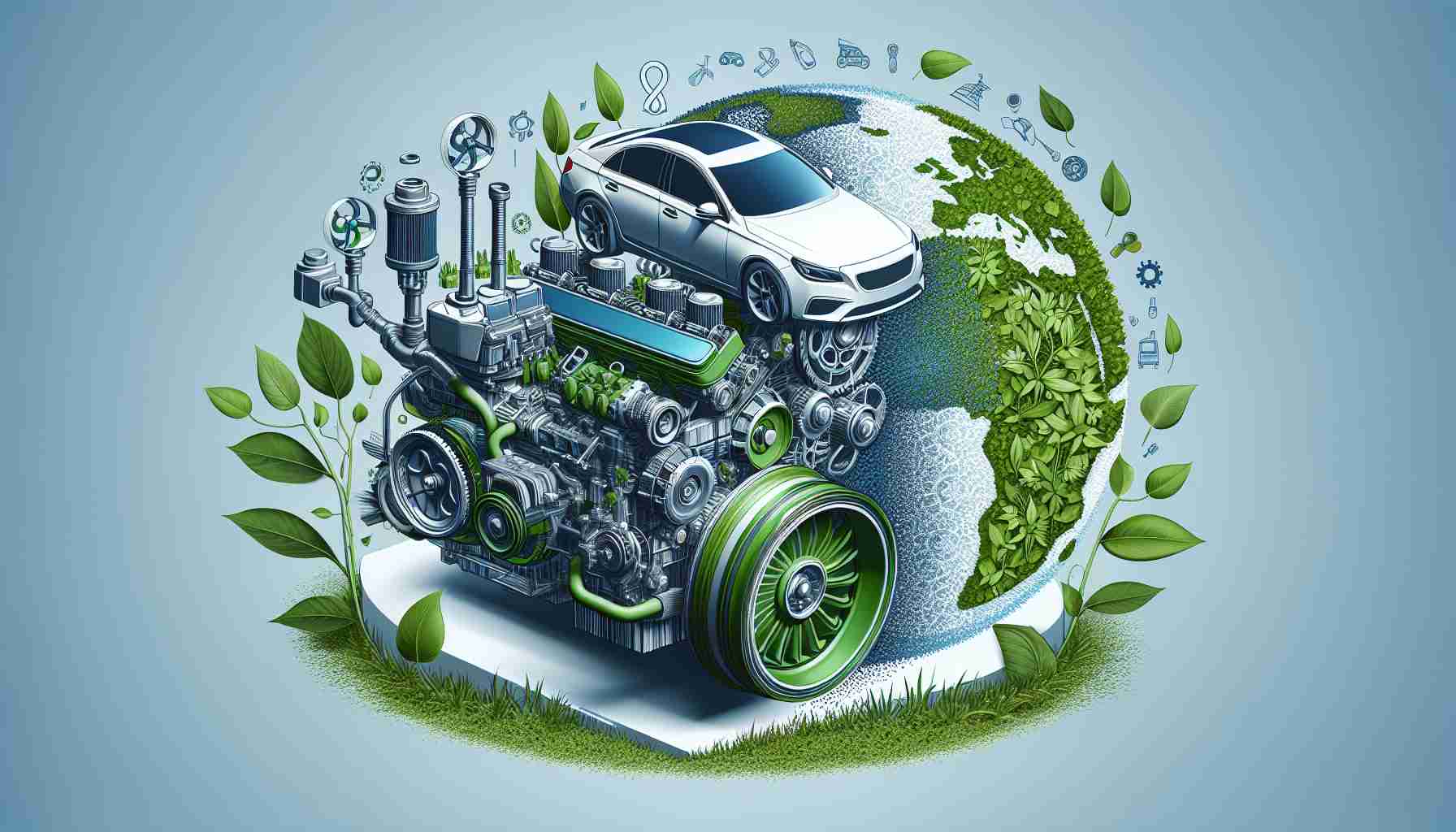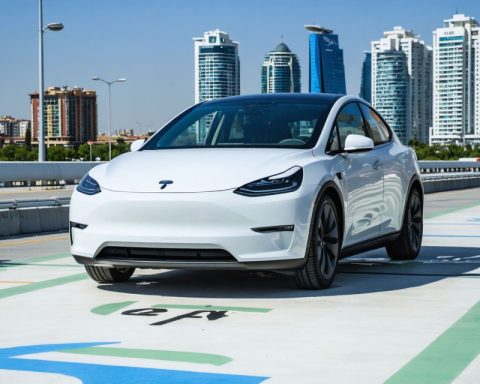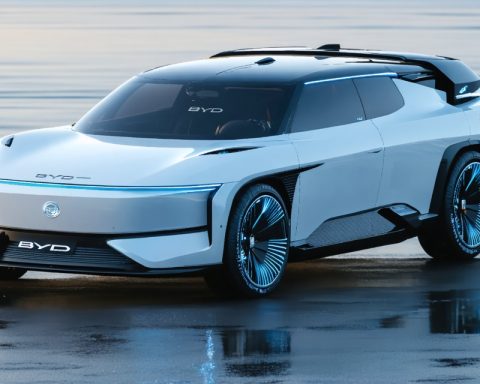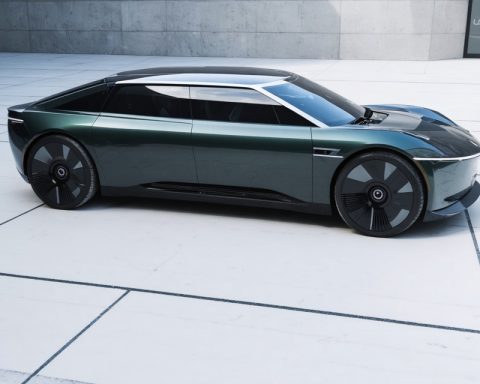Alpine’s Latest Move in Sustainable Motorsport
The automotive world has recently witnessed a remarkable milestone as Alpine unveils its groundbreaking V6 hydrogen engine. This innovative powertrain marks a significant advancement, blending high-performance capabilities with a commitment to eco-friendly practices. As automotive brands globally refine their approaches, Alpine is ardently pursuing hydrogen as a viable fuel source for the future of motorsport.
This latest hydrogen engine prototype boasts an impressive 3.5-litre twin-turbo V6 that generates a staggering 740bhp, reaching an exhilarating 9,000rpm and delivering 770 Nm of torque. The strategic placement of two hydrogen engines allows for enhanced performance, making this model a key asset in Alpine’s two-year development journey toward sustainability.
Though excitement surrounds hydrogen technology, Alpine remains dedicated to electric vehicles, with plans to introduce seven new electric models by 2030. This pivot demonstrates their commitment to research and innovation in hydrogen technology, potentially paving the way for groundbreaking motorsport applications.
As the world grapples with climate change, the shift towards cleaner fuel alternatives is becoming urgent. Hydrogen stands out as a promising option, particularly due to its adaptability in existing internal combustion engines. However, for sustainability to take root, affordability must also play a crucial role, ensuring all consumers can transition to greener options without financial strain.
Through their visionary approach, Alpine’s new developments reveal a forward-thinking perspective, ready to embrace the evolution of eco-friendly driving.
Alpine Treads a New Path with Hydrogen: Revolutionizing Motorsports for a Greener Future
Alpine’s Advancement in Hydrogen Technology
Alpine has introduced an innovative V6 hydrogen engine that marks a transformative step in the realm of sustainable motorsport. This cutting-edge powertrain integrates high performance with environmentally friendly practices, setting a new standard for future automotive technologies.
Specifications of the Hydrogen Engine
The newly unveiled prototype features a robust 3.5-litre twin-turbo V6 engine, capable of producing an extraordinary 740 brake horsepower (bhp) and reaching an impressive 9,000 revolutions per minute (rpm). It delivers 770 Nm of torque, leveraging dual hydrogen engines strategically placed to optimize performance. This engine is a central element in Alpine’s two-year development plan aimed at shifting the motorsport landscape towards sustainability.
How Hydrogen Compares to Traditional Fuels
Hydrogen fuel has emerged as a strong competitor to traditional fossil fuels, particularly due to its ability to integrate with existing internal combustion engine technologies. The primary advantage lies in its potential for zero-emission output—when burned, hydrogen produces only water vapor. This starkly contrasts with conventional fuels that release greenhouse gases.
Pros and Cons of Hydrogen Technology
Pros:
– Environmental Impact: Hydrogen fuel generates zero emissions at the point of use.
– Performance Potential: High power outputs can compete with conventional fuels, especially in motorsports.
– Infrastructure Compatibility: Existing combustion engines can be adapted to utilize hydrogen, making the transition easier for manufacturers.
Cons:
– Cost of Production: Currently, hydrogen production is expensive compared to traditional fuels.
– Fuel Distribution Challenges: The availability and infrastructure for hydrogen refueling are still underdeveloped globally.
– Energy Efficiency: Converting hydrogen into usable power can lead to energy losses, making it less efficient than electric power under certain circumstances.
Alpine’s Future Electric Plans
Alongside its hydrogen initiatives, Alpine is not abandoning electric vehicles; it has revealed plans to introduce seven new electric models by 2030. This dual focus positions Alpine at the forefront of both hydrogen and electric vehicle technology, showcasing a holistic approach to sustainability.
Market Trends
The automotive industry is increasingly prioritizing sustainability and innovation in fuel technologies. According to recent market analyses, demand for eco-friendly vehicles, combined with advancements in hydrogen production, is expected to rise significantly in the coming years. As global governments enforce stringent emissions regulations, companies like Alpine that invest in sustainable technologies could gain a competitive edge.
Insights into Consumer Transition
As the transition to alternative fuels begins, affordability will play a crucial role in consumer acceptance. Making hydrogen vehicles economically viable is essential for widespread adoption. Manufacturers will need to focus on lowering production costs and increasing the investment in hydrogen infrastructure to make this transition seamless for consumers.
Conclusion
Alpine’s new V6 hydrogen engine represents not just a step towards sustainable motorsport but a broader commitment to revolutionize how we think about fuel and performance. As the company progresses in its dual focus on hydrogen and electric vehicles, it stands to influence the automotive industry’s shift toward greener alternatives.
For more insights on sustainable motorsport innovations, visit Alpine Cars.














